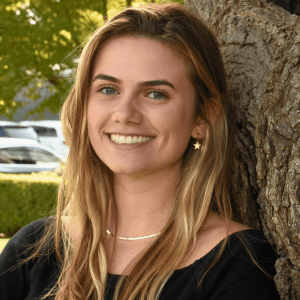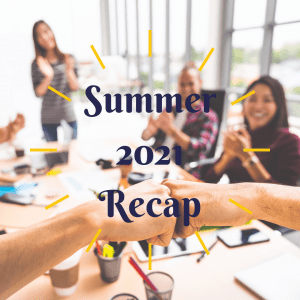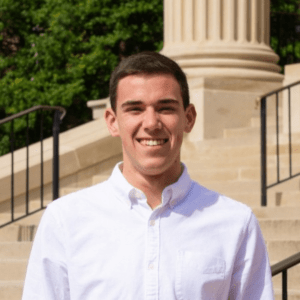As a Fellow in the Hunt Institute, Benjamin J. Vann brings his expertise in finance, philanthropy, entrepreneurship, and impact investing, combined with deep grass root social sector experience in community organizing, civic engagement, economic empowerment, and non-profit governance. Benjamin is the Founder and CEO of Impact Ventures, a startup accelerator with a mission to eliminate the social and economic barriers for underrepresented Women and Minority Entrepreneurs launching high growth, tech or tech-enabled businesses and social enterprises. He is also a member of the Leadership Council for the Inclusive Economy Consortium.
Benjamin is the Founder and Managing Partner at the Inclusive Capital Fund (ICF), an impact-first investment fund focused on economic justice. ICF uses integrated capital to improve access, opportunity, and outcomes across LMI communities and diverse entrepreneurs both locally and abroad. Previously, he worked as Finance Manager at Good Returns Group, a global social enterprise startup working to transform corporate philanthropy through impact investing and micro-lending. He worked as the North Texas Philanthropy Officer at The Trust for Public Land, Fundraising Associate at Fidelity Charitable, managing the worlds largest Donor Advised Fund, spent time as a Financial Analyst at Fidelity Investments, and various roles in Banking prior to relocating to Texas.
Benjamin has been recognized both locally and nationally as a results-oriented change maker and thought leader for his business insight, strategy, collaborative cross-sector approach, and unique skillset to create innovative business models, initiatives, and solutions that positively impact communities. He speaks frequently to audiences on topics surrounding conscious capitalism, building inclusive entrepreneur ecosystems, impact investing/venture capital, inclusive leadership, social entrepreneurship, philanthropy, and more. He is a 2020 Boston Impact Initiative Fund Building Fellow, 2018 World Economic Forum Global Shaper Fellow, Partner at Dallas Social Venture Partners, Dana Juett Social Venture Resident, and 2015 Mayor’s Star Council Alumni.
When asked what motivates Benjamin to do impact work he answered, “Genius is evenly distributed across zip codes however access and opportunity are not” As change agents we are motivated to unlock resources that create access and opportunities for others. This is my why.”
As a dedicated servant leader, Benjamin currently serves as an executive board member for the Association of Fundraising Professionals (AFP) Greater Dallas Chapter and The Dallas Foundations Good Works Under 40 Selection Committee. He previously served as a City of Dallas appointee to the South Dallas Fair Park Opportunity Fund, South Dallas Fair Park TIF Board, Bishop Arts Theatre Center, Anthem Strong Families, DISD Innovation Design Entrepreneurship Academy (IDEA), and Aspire — Fidelity Investment Regional African-American and Latino Employee Resource Group. In 2015, he launched the Dallas County Civic Alliance, a citywide Get Out The Vote initiative that resulted in registering over 10,000 residents in Dallas County. He is also a member, volunteer and supporter of the DFW Urban League Young Professionals, NSBE DFW, and The NAACP Dallas Chapter.
Benjamin has received a number of awards and recognition by both regional and national media and news publications. In 2021, he was appointed RSF Finance Just Economy Institute Fellow and the recipient of the DMagazine DCEO 500 award. He was named one of the top 50 innovators in DFW in Dallas Innovates The Magazine 2020 Edition. In 2019, he was nominated for Cosign Magazine’s Tech Innovator and Public Figure of the Year Award, as well as Entrepreneur of the Year Award in 2017. Awarded DFW Urban League Business of the Month, in 2016, he was featured in the 3rd and 4th edition of Who’s Who in Black Dallas Publication, In 2015, he awarded 40 under 40 Future Leaders in Dallas by i10 Magazine, named top 28 #BlackDFWMatters influencers, and featured on the cover of Be Great Magazine, Dallas Millennials Edition.
Benjamin is a Midwest native of Wichita, KS and earned his Bachelor Degree in Finance from Washburn University, where he was also a standout Defensive Back. Benjamin also played professional football in the Indoor Football League (IFL) for the Kansas Koyotes and was the Defensive Coordinator at Highland Park High School in Topeka, KS. He is a self-taught musician of four instruments, avid vinyl collector, and a proud member of Kappa Alpha Psi Fraternity Incorporated.
To read more about the Hunt Institute’s work to develop future-focused solutions to some of the world’s biggest problems, please click here. For the latest news on the Hunt Institute, follow our social media accounts on LinkedIn, Facebook, and Instagram. We invite you to listen to our Podcast called Sages & Seekers. If you are considering engaging with the institute, you can donate, or sign-up for our newsletter by emailing huntinstitute@smu.edu.










 On this episode of
On this episode of 

 On this episode of the Hunt Institute’s Sages & Seekers Podcast, Ana Rodriguez, Managing Director of the Latino Leadership Initiative in the Cox School of Business, discusses representation and diversity at SMU, the importance of mentorship, food security, self-care and grit.
On this episode of the Hunt Institute’s Sages & Seekers Podcast, Ana Rodriguez, Managing Director of the Latino Leadership Initiative in the Cox School of Business, discusses representation and diversity at SMU, the importance of mentorship, food security, self-care and grit.
